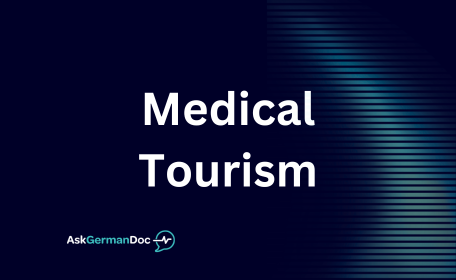Medical tourism is gaining momentum worldwide, offering patients access to advanced medical care that may be unavailable or unaffordable in their home country. By combining high-quality treatment with the comfort of international travel, medical tourism has become an attractive option for those seeking timely, expert, and personalized healthcare.
Goals of Medical Tourism
The primary goal of medical tourism is to obtain high-quality medical services—often more efficiently, affordably, or innovatively than what is available at home. Patients travel to countries known for their excellence in diagnostics, complex surgeries, or comprehensive rehabilitation programs. The key advantages include:
-
Access to advanced technologies: Many international clinics are pioneers in minimally invasive procedures, robotic surgery, and personalized medicine.
-
Highly qualified specialists: Physicians abroad often hold international certifications and extensive clinical experience.
-
Reduced wait times: Patients can start treatment without months-long delays.
-
Treatment combined with recovery travel: Many patients choose to heal in peaceful, comfortable environments abroad.
Ultimately, medical tourism helps improve quality of life, enabling patients to receive optimal care while benefiting from tailored wellness programs and a supportive healing environment.
Top Destinations for Medical Tourism
The popularity of certain countries for medical tourism reflects their advanced healthcare systems and specialization. Some of the most sought-after destinations include:
-
Germany: Renowned for cutting-edge diagnostics, oncology, and orthopedics.
-
Israel: Leading in cancer treatment and organ transplantation.
-
South Korea: Famous for advanced cosmetic surgery and dermatology.
-
Switzerland: Preferred for rehabilitation, anti-aging, and geriatric care.
-
Turkey: Known for its affordable and quality dental care and aesthetic surgery.
Each country offers distinct strengths and tailored services for different medical needs and budgets.
New Trends: Combining Medicine with Wellness
A growing trend in medical tourism is the integration of traditional medical treatment with holistic wellness services. These comprehensive packages often include spa treatments, fitness programs, nutrition consultations, and stress-reducing therapies. Such an approach enhances patient satisfaction and supports faster recovery—making the medical journey not only effective but also restorative.
Categories of Medical Tourism
Medical tourism includes a wide spectrum of services. It can be broadly divided into two major categories: cosmetic tourism and therapeutic medical tourism.
Cosmetic Medical Tourism
Cosmetic tourism is aimed at patients who seek to enhance their appearance through advanced surgical techniques. Popular procedures include:
-
Rhinoplasty (nose reshaping)
-
Facelifts
-
Liposuction
-
Breast augmentation or reduction
Countries such as South Korea, Turkey, and Switzerland have become leaders in cosmetic tourism due to high safety standards, innovative techniques, and competitive pricing. Patients benefit from world-class results with minimal downtime.
Therapeutic Medical Tourism
This category addresses more serious health conditions and complex treatments, including:
-
Organ and tissue transplantation
-
Cancer treatment with targeted therapies or proton beam therapy
-
Dental implants and full-mouth restoration
-
Post-operative rehabilitation and physiotherapy
Germany, Israel, and Switzerland stand out for their individualized care, clinical excellence, and multidisciplinary treatment plans.
How to Choose the Right Clinic for Treatment Abroad
Choosing the right clinic is a critical factor in achieving successful outcomes. Patients should consider the following:
-
Clinic reputation: Look for institutions with international accreditations such as JCI (Joint Commission International).
-
Medical staff qualifications: Ensure physicians have appropriate certifications and experience.
-
Technology and innovation: Advanced diagnostic tools and treatment equipment ensure precision and safety.
-
Patient reviews: Seek out honest testimonials and case stories to understand real-world outcomes.
Platforms like AskGermanDoc help patients navigate these decisions by providing access to expert guidance, clinic matching, and translation support throughout the process.
Advantages of Medical Tourism in Europe
Europe is a global leader in medical tourism due to:
-
Strict safety regulations
-
Advanced treatment protocols
-
Easy travel access and infrastructure
Patients from countries like Russia, the Middle East, and Asia often travel to Germany, Austria, or Switzerland for services that are either unavailable or cost-prohibitive at home.
Modern Technology as a Deciding Factor
Leading clinics in Europe use state-of-the-art medical technologies such as robotic-assisted surgery, AI-based diagnostics, and precision radiotherapy. These tools not only improve surgical accuracy and treatment success but also shorten hospital stays and recovery time—factors that are critical for international patients.
Individualized Care and Language Support
Many clinics offer personalized treatment plans, adjusted to the medical history, preferences, and cultural needs of each patient. Additionally, language support—including professional medical interpreters—is often provided, ensuring smooth communication, reduced anxiety, and greater confidence in care.
Risks and How to Minimize Them
Despite many benefits, medical tourism also carries certain risks. These include:
-
Varying medical standards across countries
-
Postoperative complications far from home
-
Miscommunication due to language or cultural barriers
To mitigate these risks, patients are advised to:
-
Thoroughly research clinics and physicians
-
Choose accredited institutions
-
Use professional platforms like Ask German Doc to coordinate care, translation, and follow-up
Conclusion
Medical tourism is a gateway to world-class healthcare, allowing patients to benefit from the best available treatments and technologies. Choosing the right country and clinic is essential for successful results.
Disclaimer: This article is for informational purposes only and does not constitute medical advice. Medical decisions should always be made in consultation with licensed healthcare providers. Outcomes may vary depending on individual conditions. Ask German Doc offers support in choosing appropriate providers but does not perform any medical treatment.
Sources:
-
Joint Commission International – https://www.jointcommissioninternational.org
-
Bundesärztekammer – https://www.bundesaerztekammer.de
-
WHO Medical Tourism Report – https://www.who.int
-
OECD Health Data – https://www.oecd.org/health


